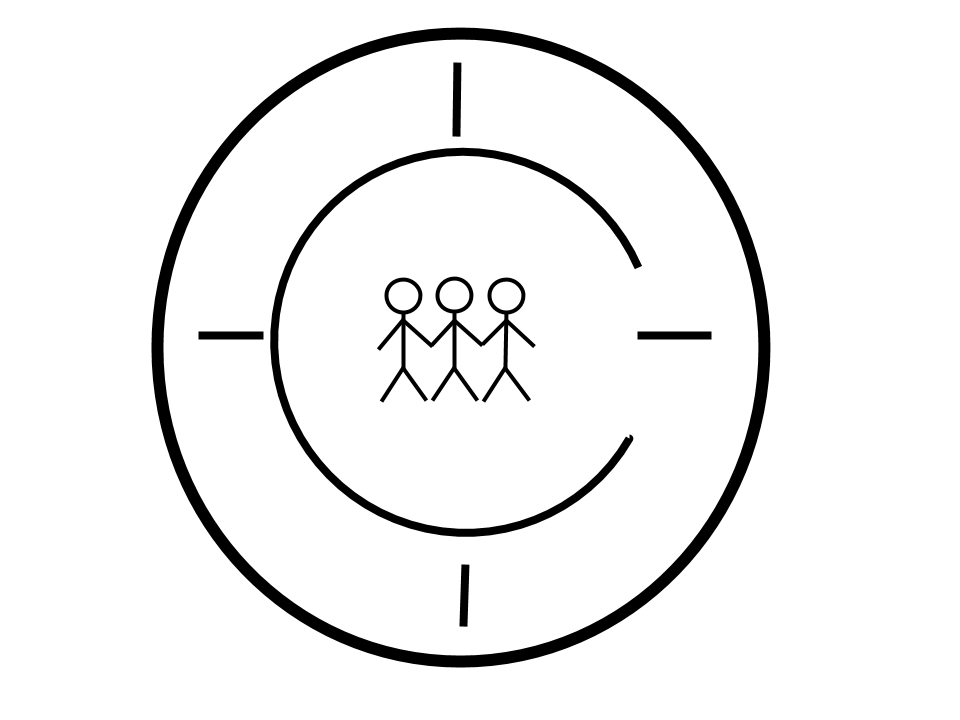How Do We Love Those Whom We Do Not Know?
A Challenger sent along this reflection on knowledge and love:
I’ve been struggling lately trying to figure out how the Lord wants me to love those whom I do not know. And by know, I mean understand. For if I understand someone, I feel like I would love them because I then know them. Yes…perhaps some circular reasoning there. Like, a lot of circular reasoning. So boo that. But still, if Christ is in everyone, and if we are called to know Christ, are we not called to know everyone? It almost pains me that there are people who I do not understand. Because I am ignorant to them if I don’t understand them. I make assumptions about why they do what they do. I think that since I am “faithful” (more accurately, I think that since I think that I am faithful) and knowledgeable in a few areas (because everyone is), that means that anything I think is true. Someone cuts me off on the highway; I think they are a jerk. But what if they are rushing to the hospital? I don’t understand them, and I am angry against them in my ignorance. I don’t love them.
This extends even further into the hot button topics of our culture. Someone talks about something controversial and we immediately begin defending the truth. Which…like…isn’t sinful. It’s not sinful to defend the truth. But is it always the first step we should take? I have realized that these people I am dialoguing with, I don’t understand. I don’t know. And –on a personal level- I feel like I have skipped getting to know the Christ in them and am just treating them as a means to an end. The end being defending the truth and the means being this person in front of me. I am not recognizing that this person in front of me is a child of God. I fail to see through the faults that I believe they have into the real person that they are. I treat them as though their identity is as a sinner. How often do I tell people in ministry that they are children of God? People that –relatively speaking– have already heard that a billion times. And yet I don’t realize that the person in front of me is the Lord’s daughter, the Lord’s son. And I ignore that. Ouch.
So the question becomes, “How do we love those whom we do not know?” Upon talking about this subject a really awesome priest said something along the lines of: “the steps of evangelization are not making someone behave, believe, belong. But rather making them belong, believe, behave”. Wow. He says our first goal is to make them feel loved. Let’s face it, as the people of the Church we haven’t done a good job of making people who believe what is contrary to the Church feel loved. So we love those we do not know by first…getting to know them and showing that Christ like love. What I propose is that before we argue with someone about what they are doing that we believe is contrary to the Church, before we even explain the beauty of the way of Christ – the perfect way, we try to understand them. Try to understand not what we think causes them to do what they do, but understand why they think they do what they do. Even more broadly, just understand them, get to know them, build community with them. They are a human, they are a child of God, they are deserving of love, compassion, and respect because they are a Child of God. Do we recognize that? Do we communicate that to those we don’t agree with? They do not need to merit the Lord’s love and by extension they shouldn’t have to merit our love, they deserve it because they are human. So let’s build community with our brothers and sisters. Let’s love the Christ in them. And once we have done that, then sure, let’s introduce them to the beautiful way of Christ. Not that it’s wrong to spread truth, but is the way we are currently going about doing it truly effective?
I will end with one final thought: “People don’t care how much you know, until they know how much you care” ~ Literally every famous person has this attributed to them So…How do we love those whom we do not know? Get to know them. Show them that they are cared for. Love them. And then everything else can follow.
